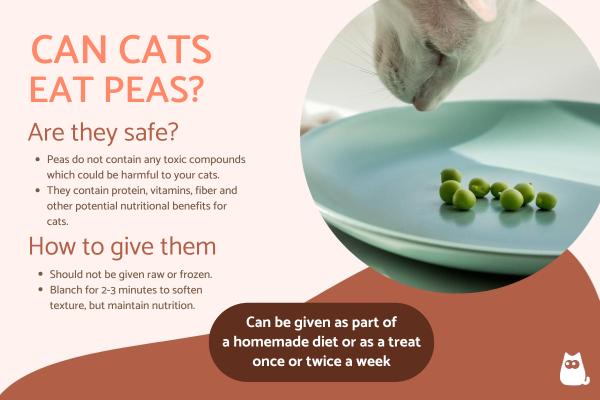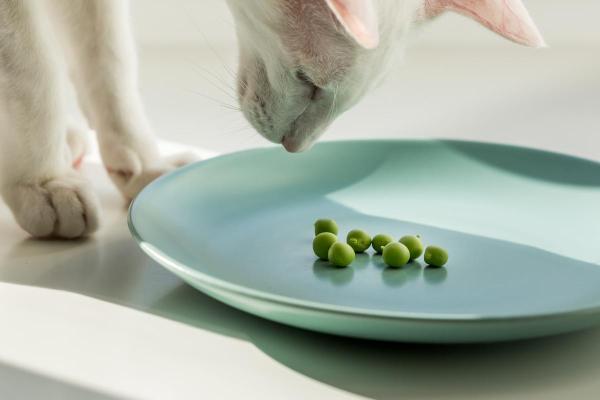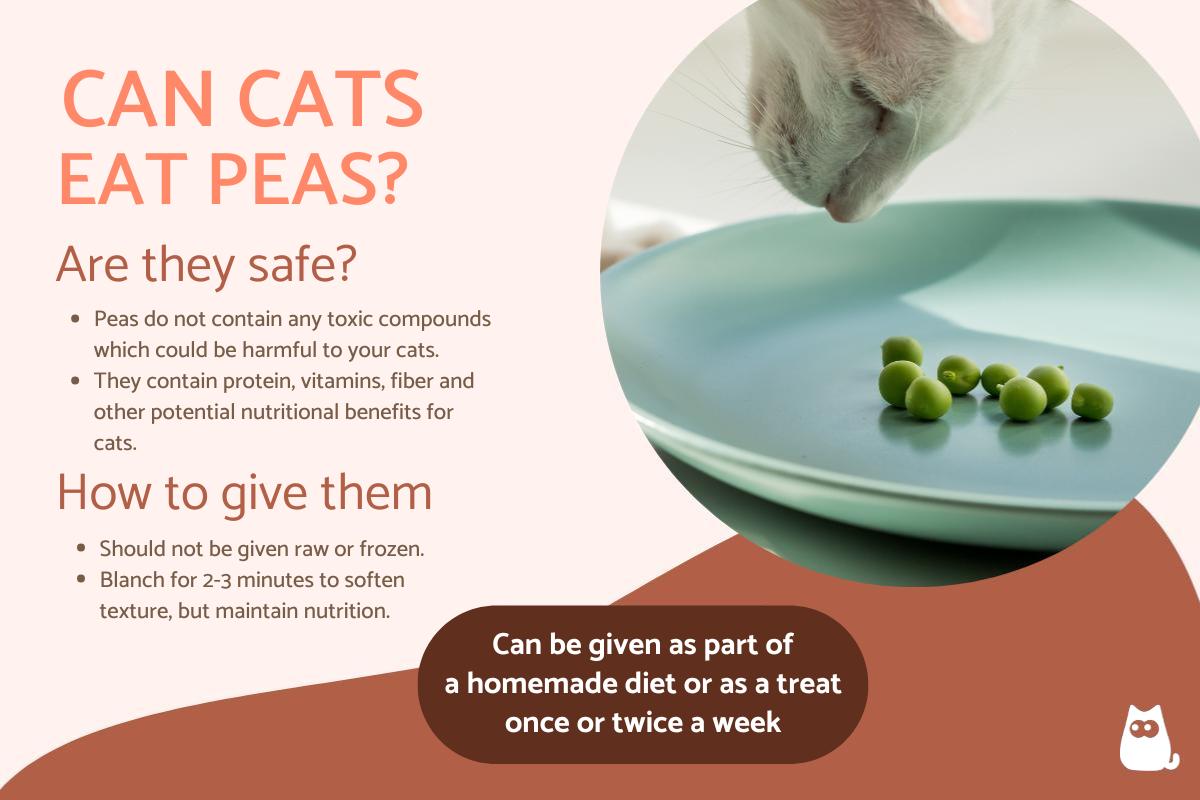Are Peas Bad for Cats?



See files for Dogs
With garden peas, sugar snap peas, snow peas and many other varieties, you will be forgiven for thinking peas come from many plants. In actuality, they are all from the same organism known as the pea plant (Pisum sativum or Lathyrus oleraceus). The differences derive from the use of cultivars, as well as method of growth and harvesting. Despite these differences, they are all essentially the same plant. They provide lots of health benefits for people, but we should know that not all human foods are good for dogs. This is why AnimalWised asks are peas bad for cats?
Peas are not bad for cats. While they should not make up their main diet, they can be used as as a treat for felines or help to provide some additional nutrition.
Can cats eat peas?
Peas are not bad for cats to eat. They are a food rich in plant protein, vitamins and fiber. While these can be nutritional benefits for cats, they wouldn't mean anything if the plant was toxic for cats. Fortunately, peas do not contain any compounds which will cause harm to the cat if ingested.
Since they are not harmful and provide some nutritional benefit, peas are a completely safe food for cats. Moreover, they can be good for cats when incorporated as part of a balanced diet. They are one of the vegetables most commonly used as an ingredient in cat food. They are often prepared fresh in homemade food recipes for cats, but they can also be dehydrated or incorporated into kibble.
Despite their potential benefits, it is important to remember that cats are obligate carnivores. While they do contain protein, this is mostly in the form of incomplete plant protein which will not contain the essential amino acids for cats. In this way, we cannot give peas or any vegetables as the main part of the feline diet. We can include it as part of a balanced diet, something we explain in the sections below.

Benefits of peas for cats
Now that we know that peas can be good for cats, we understand why by looking at the nutritional benefits of incorporating this legume into your feline's diet:
- They are rich in protein: a serving of peas has almost as much protein as a whole egg. As we have explained, the biological value of pea protein is lower than that of animal protein. This is because it contains a lower proportion of essential amino acids, the amino acids the body is unable to synthesize and which must be consumed through the diet.
- They contain very little fat: peas contain less than one gram of fat per serving and no cholesterol since they are a food of plant origin.
- They are an important source of fiber: although fiber is a nutrient that cats cannot digest, it is essential in their diet. The reason is because it improves intestinal transit, regulates the consistency of feces and promotes the maintenance of a beneficial intestinal microbiota.
- They are rich in vitamins: mainly vitamin C and vitamin B9 or folic acid. They also have significant concentrations of vitamin B1 (thiamine) and vitamin B3 (niacin).
- Contains carotenoids: these compounds are transformed into vitamin A in the cat's body. Carotenoids stand out for their antioxidant power and their ability to boost the immune system.
As you can see by these benefits, peas are not only safe for cats, they can be good for them too. Learn about other plants that fall into this category with our article sharing the recommended fruits and vegetables for cats.
How to give peas to cats
Now that we know that cats can eat peas, you may be wondering whether cats can eat cooked peas or if they should only eat fresh peas. Cats can eat fresh green peas, but offering them in this way can produce a choking risk, especially in small or brachycephalic cats. Offering cooked peas helps soften their texture and makes them easier to ingest.
If you are thinking about including peas in your cat's diet, you should use the following method of preparation:
- Blanch them in boiling water for 2-3 minutes. Cooking them for longer will destroy much of the vitamins in the food and consequently reduce its nutritional value.
- Do not add salt, spices or other condiments. Not only do they provide no nutritional value, but they may contain ingredients toxic to cats and can cause serious poisoning.
How many peas can I feed my cat?
While cats are obligate carnivores which need animal protein for sustenance, they can have a diet supplemented with some vegetables. In these cases, we can include peas into this portion. The total amount will depend on the individual cat's needs. For example, we will need to factor in traits such as age, daily activity levels and physiological state (e.g. neutered, pregnant, etc.).
Regardless of the cat, it is vital we provide vegetables as part of a diet balanced with animal protein. If you regularly feed your cat a homemade diet, you should seek advice from a professional veterinarian specialized in animal nutrition. This is the best way to guarantee your pet's diet is balanced and meets their specific nutritional needs.
If you usually feed your cat a commercial diet, you can choose to include peas in their diet as a treat or reward, as long as this food is to your cat's liking. For example, once a week you can offer four or five cooked peas as a treat.
While cats can eat peas, discover the fruits and vegetables cats can't eat with our related guide.
Side effects of peas for cats
In general, feeding peas to cats should not have any harmful effects on their health. When the recommendations we have mentioned throughout the article are not taken into account, some problems may arise. These may include:
- Choking or suffocation: when the cat is given uncooked or frozen peas.
- Nutritional imbalances: when an excess of peas is provided or the other ingredients in the ration are not adequately balanced.
- Digestive or dermatological problems: occurs in cats with allergies or food intolerance to peas.
Learn more about feline food intolerances with our article explaining the most common food allergies in cats.

Contraindications of peas for cats
Although peas are legumes suitable for cats, there are certain situations in which their intake may be contraindicated:
- Cats with food allergies or intolerances
- Cats with a digestive system that is especially sensitive to dietary changes
- Cats with gastrointestinal pathologies such as gastroenteritis, inflammatory bowel disease (IBD), digestive lymphoma, etc.
If you want to continue discovering other foods that you can incorporate into your cat's diet, don't miss this video:

If you want to read similar articles to Are Peas Bad for Cats?, we recommend you visit our Homemade diets category.







